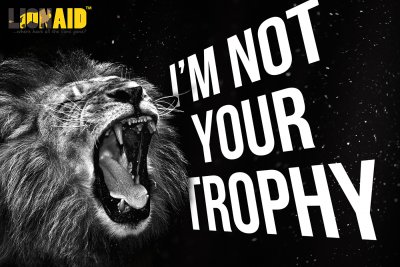News
Latest Lion Aid News
Coming onto one year after the killing of Cecil – what have we learned and achieved?
Wednesday 29th June 2016
|
For sure, Cecil's death has impacted significantly on an examination and an evaluation of how lion trophy hunting is conducted in Africa, and how such trophy hunting struggles to possibly or even remotely be called “conservation”. These are the results of such examinations:
It could be asked what is happening in a similar vein in Zimbabwe, the former country of residence for Cecil and a primary destination for foreign trophy hunters? Ask we might, but no answers are forthcoming and Zimbabwe would seemingly like to keep Cecil well shuffled under the carpet. Since Cecil's demise, we have continued to hear the perennial defensive arguments that if lion trophy hunting is stopped, the land will be converted to farmland. This flies in the face of the reality in Botswana, who banned all trophy hunting and has since engaged in a highly effective programme to convert former hunting concessions into much more profitable photographic tourism enterprises. Furthermore, clinging desperately to the trophy hunting model, it has even been suggested that trophy hunting not only brings in revenue (to whom, we may ask?) but that lions will kill not only cattle but also children (!) and this then makes it difficult to justify the conservation of lions to the African populace. So, apparently the conservation of Africa's lions is best served through killing future Cecils? And may we ask, how many African children have been killed by lions over the past ten years? On Internet searches, we failed to find any... But let’s come back to Cecil’s legacy one year on. For sure, Cecil impacted considerably on public outrage about trophy hunting. For sure trophy hunting was revealed as the selfish and conservation-negative practice it is. Apologists might remain, but their time has already been exceeded and is now even more limited. Botswana has shown that African countries can profit significantly from a non-hunting decision. That is the way to move forward and away from the wildlife destruction promoted by countries like Zimbabwe. Oh and by the way, has anyone ever met an African trophy hunter?
Picture credit: Adam Sugalski
Tags: lion trophy hunting, Zimbabwe, Cecil Categories: Trophy Hunting, Domesticating Animals |
Posted by Chris Macsween at 19:19
No comments have been posted yet.
Add a new comment
Existing user
New user sign up




